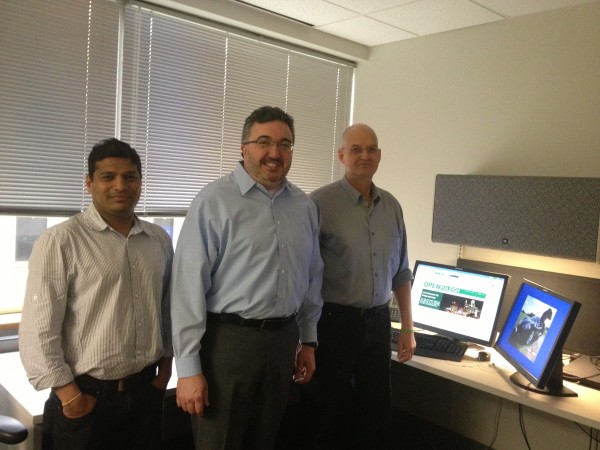Raleigh’s new open government portal won’t be fully launched until September, but the city’s new open data manager Jason Hare is working to get as much data online and accessible before then. The portal is still in its “soft launch” phase, but Hare said recently this is more than just a new website for sharing the city’s datasets. He hopes open data will be integrated into the way all city departments work.
Members of the City Council pushed last year to make city data available online and put a little money behind the idea to hire Hare to collect the data and build a new site. The open data portal launched in March and continues to be updated with big sets of data including building permits, police and fire incidents, trail maps and other digital information collected and created by the city.
[pullquote]“We want this to be citizen driven, not the Jason Hare open data show.”[/pullquote]
The Record sat down with Hare recently to talk about how the open data initiative is progressing and what’s to come. Hare’s central message: “Open data is not just a resolution, it’s also a philosophy.”
Hare, whom the city hired away from the Durham school system late last year, spent the first months in the job gathering input from community members and data from city departments. He said he’s interviewed 100-plus people on what they want in an open data portal, and he’s reaching out to community groups such as the Citizen Advisory Councils to tell people what he’s up to and ask what they want to see from the open data push.
“You don’t want the government telling you what datasets you want; you want to tell the government what dataset you want,” Hare said. “I want to be deluged with requests.”
“We want this to be citizen driven, not the Jason Hare open data show.”
“It solves the ‘Stephen Colbert truthiness’ problem. Sometimes what you think is true isn’t always actually true. It seems true, but it’s not. Here’s the data; that is true. That’s what we want to get to,” Hare said.
This summer he’s planning to go through each of the city’s 26 departments and 130 units to inventory the datasets being collected and used across city government.
“As we’re discovering these datasets we’re going to be curating them at the same time and we’re going to be setting up data contacts” as they work toward launching the full site in the fall.
“You’re going to see financial data; you’re going to see all kinds of data. Right now we don’t know what we don’t know,” he said. “Where are all the datasets at? Well, they’re everywhere. And they’re in all kinds of formats.”
“We’re biting off a lot, but the folks here are pretty smart. I have all the confidence in the world that we’ll pull this off.”

Raleigh’s new open data team. From left to right: Data Analyst Sai R. Sudhini, Open Data Project Manager Jason Hare and Senior Data Analyst Robert Richmond. Photo provided by the City of Raleigh.
Hare said the open data push is not just transparency for transparency’s sake.
“We also hope some people make a lot of money off of it,” he said. “That’s part of this, not just transparency but to have a real impact.”
He points to industries such as real estate that could use the maps of neighborhoods to make listings more accurate and give potential home buyers more options and information.
Hare pointed to what websites looked like in 1992 compared to now, and said he can’t predict how people and companies could use this data in the future.
“We’re at the very tip of what those uses could be,” he said.
“I’ve been asked a couple times, ‘is this thing temporary?’ And no, this is permanent. Open is permanent.”